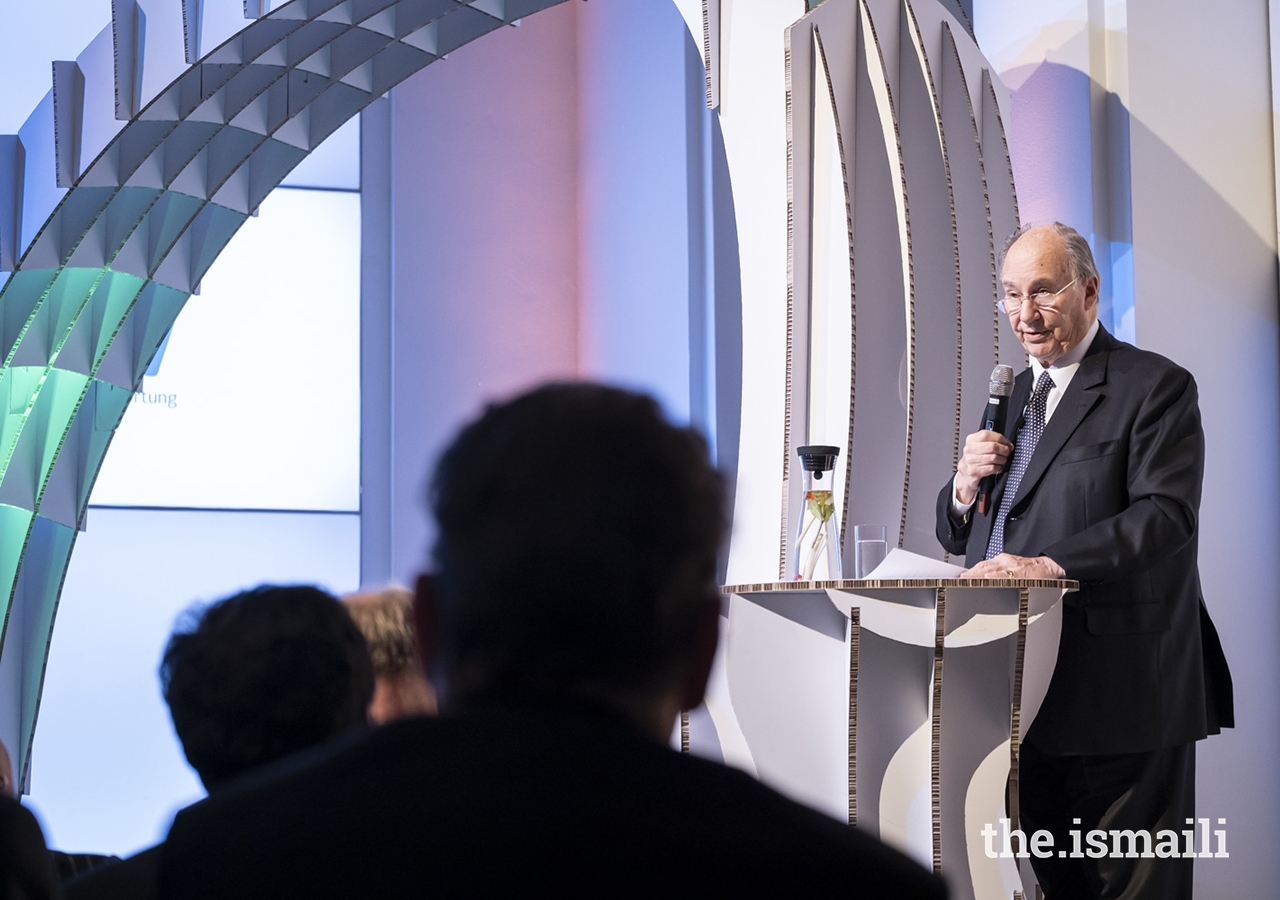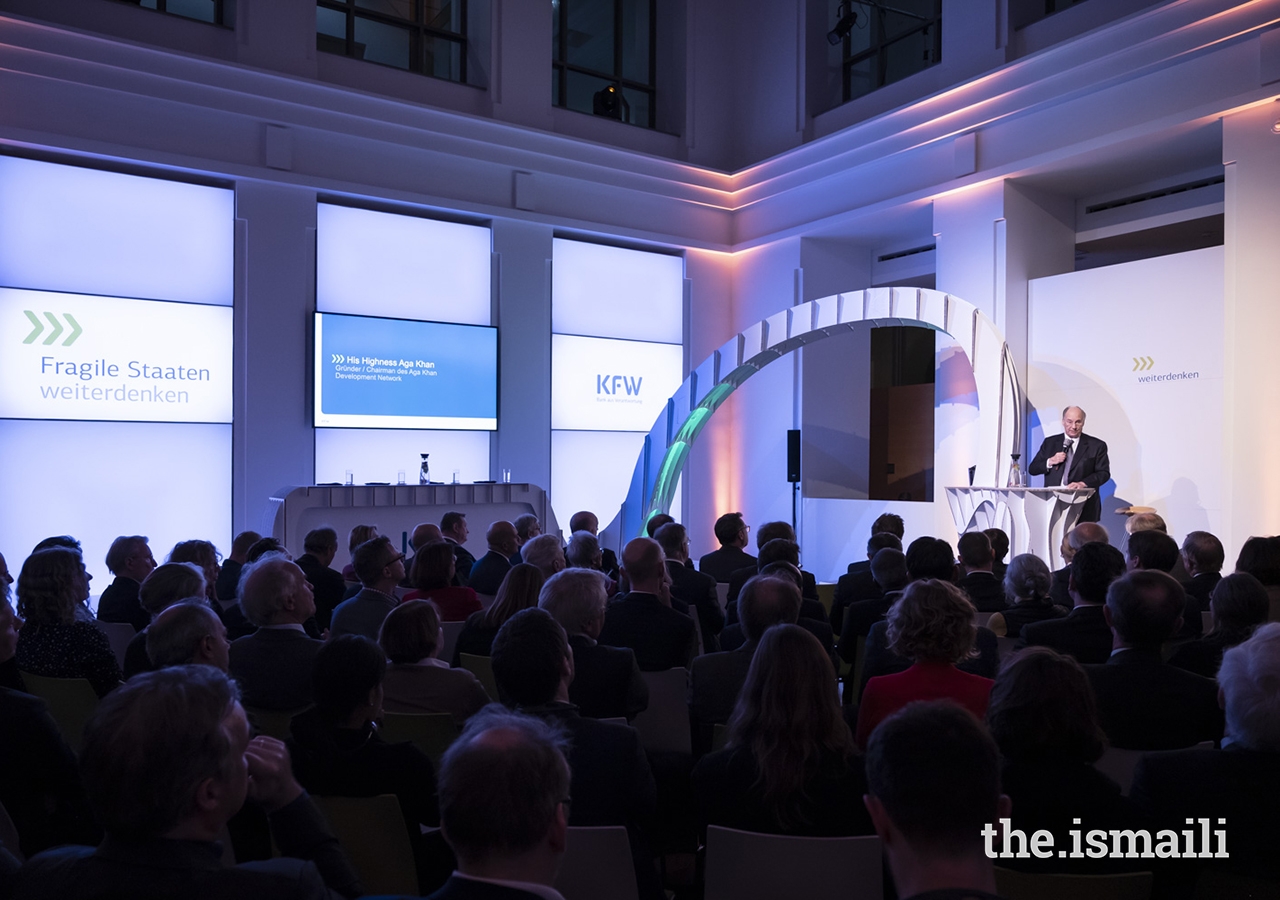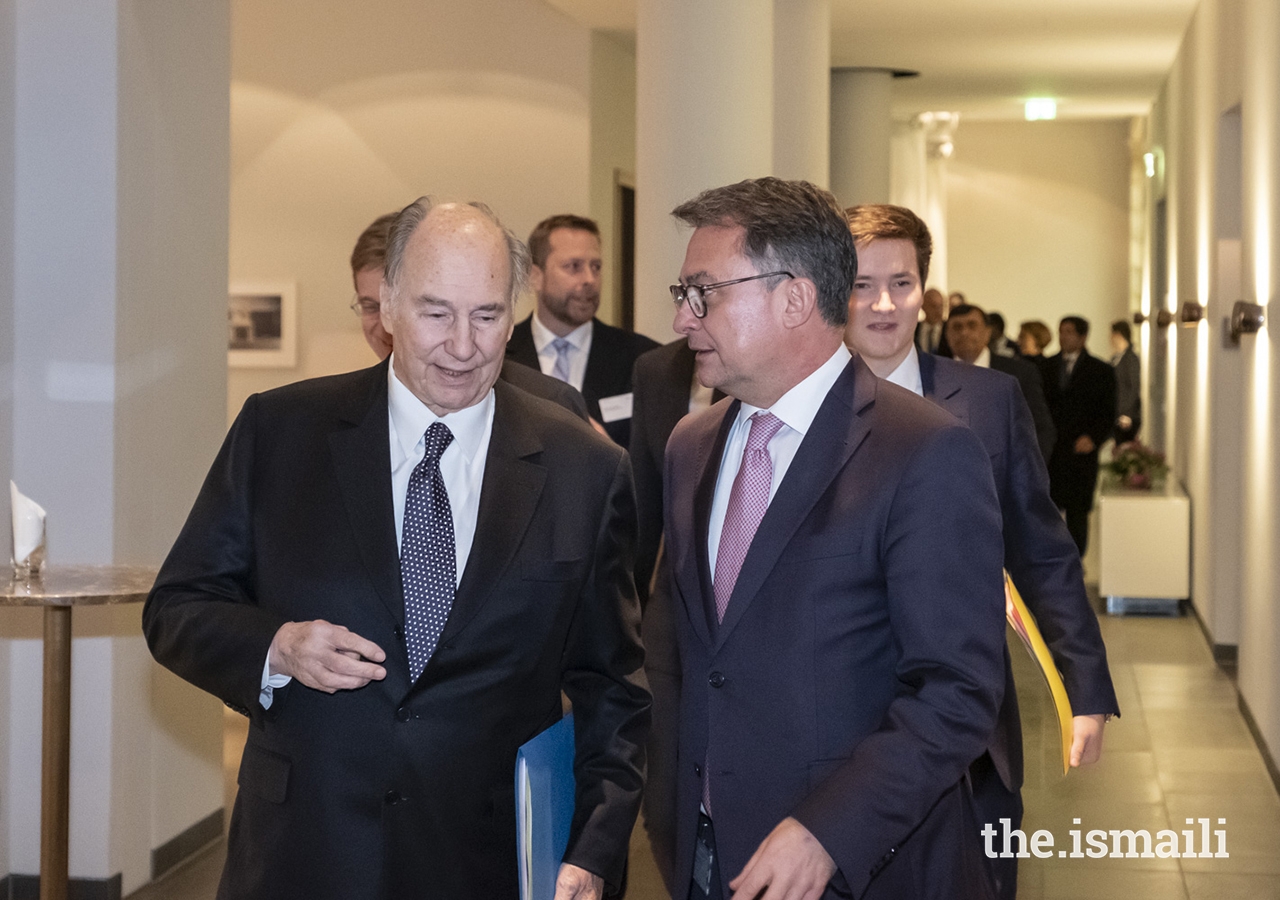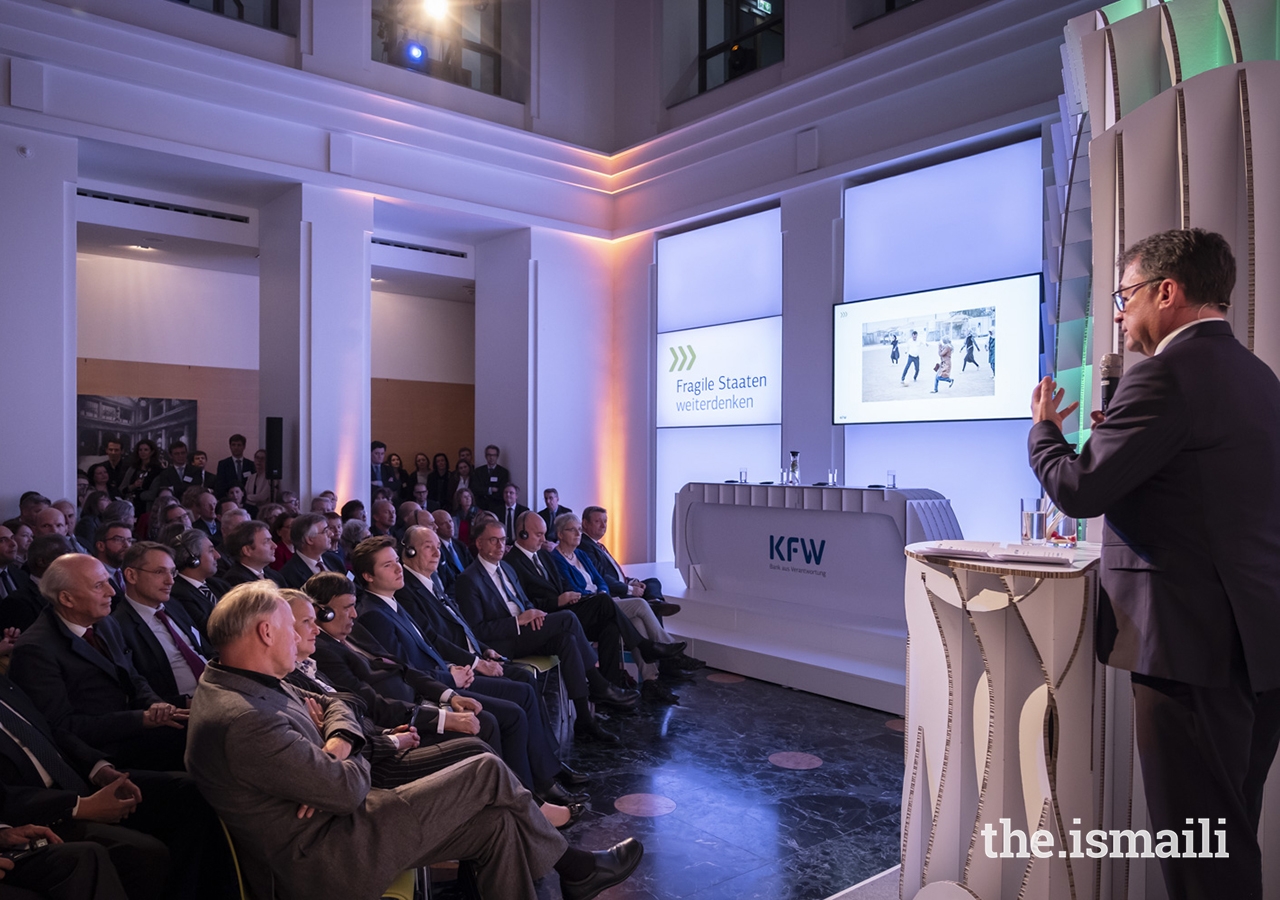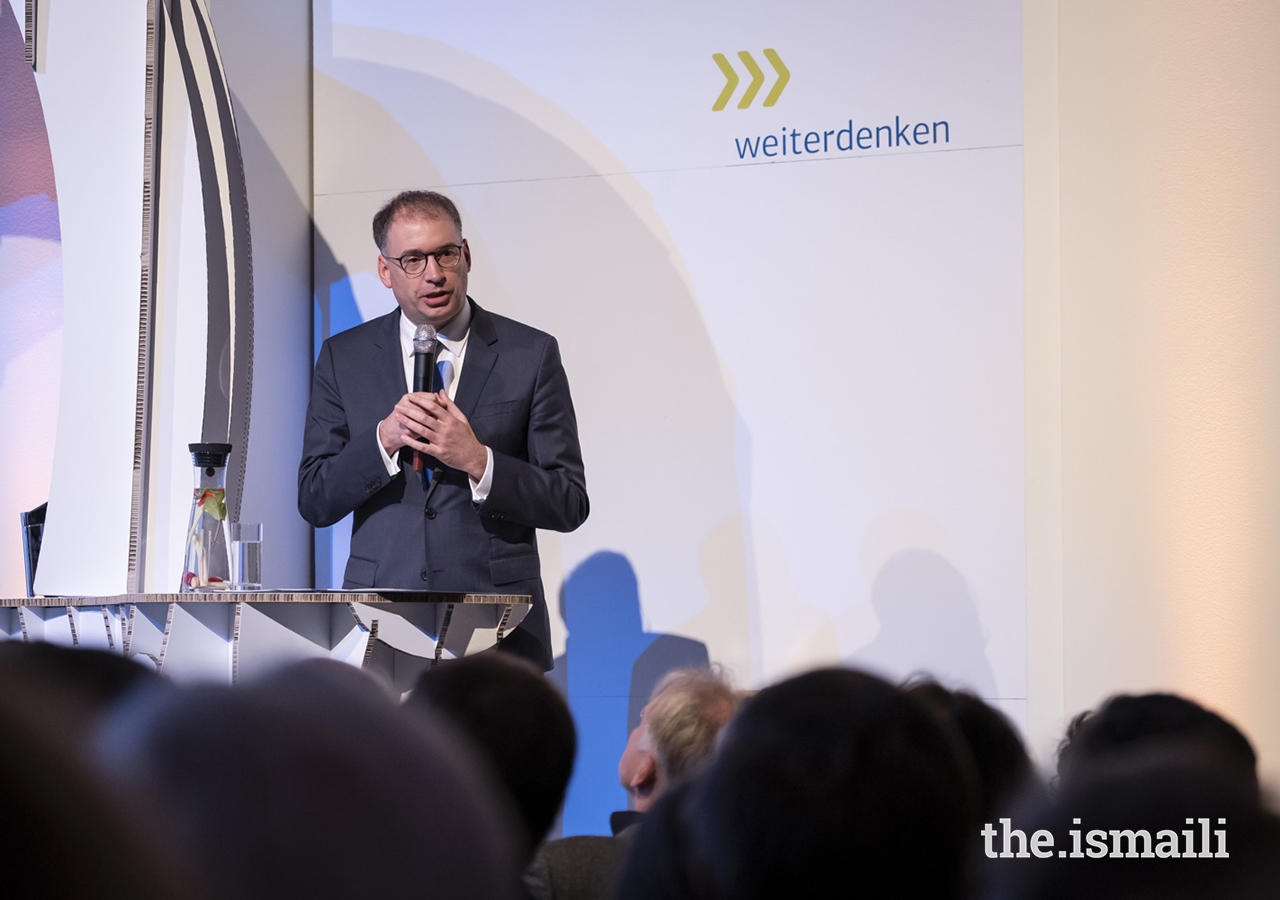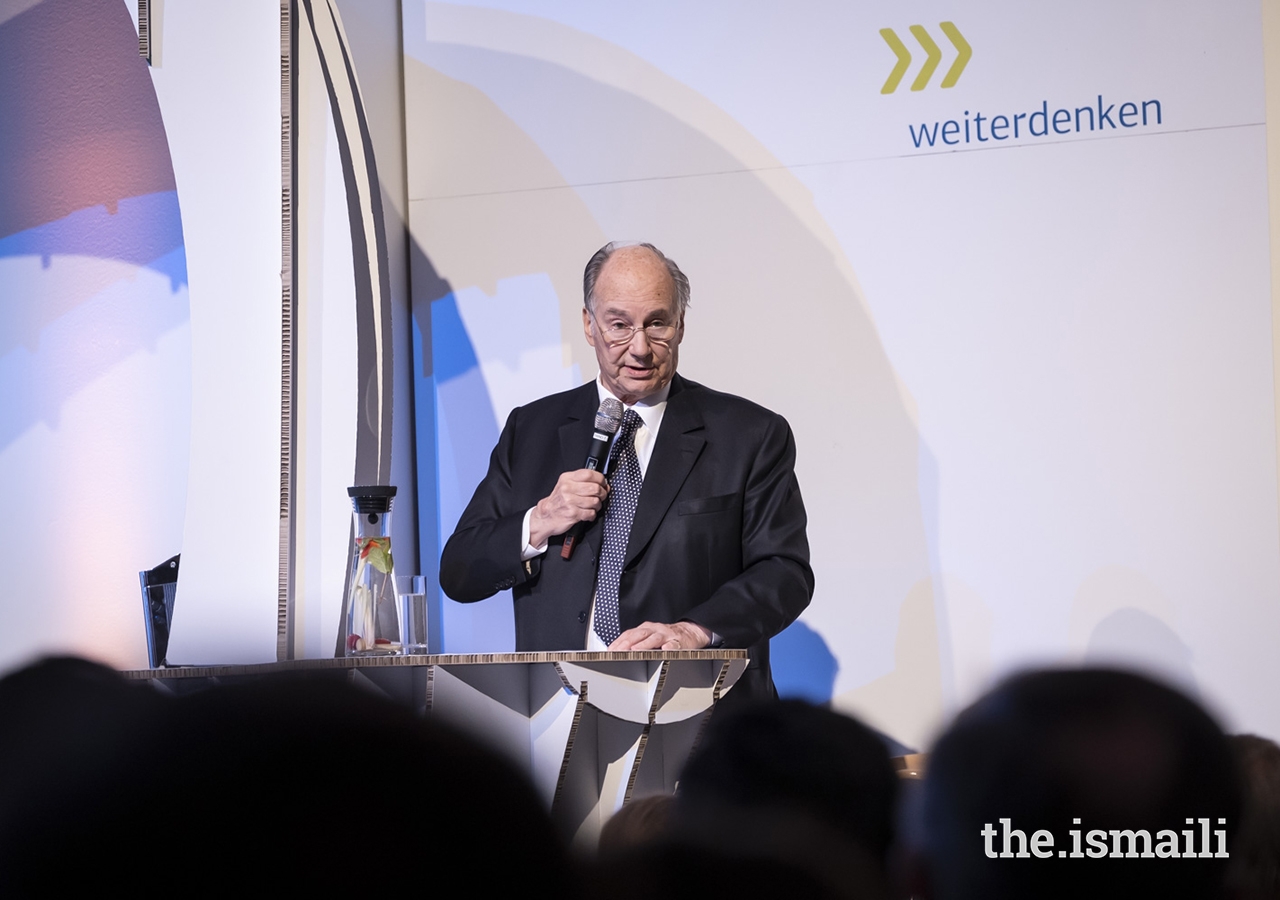The evening event, entitled “Fragile States Thinking Ahead,” brought together leaders from the Aga Khan Development Network (AKDN) and German development partners, to share best practice and lessons learned on development projects in diverse contexts .
During the event, Mawlana Hazar Imam shared three important ingredients for stability and effective development in fragile environments, based on AKDN’s experience as well as his own experience as Imam: focus at the local level, the importance of civil society, and a commitment to pluralism.
“Commitment to pluralism is essential,” Hazar Imam said. “The consultations must be wide, and everyone in the community must benefit. I have learnt this lesson during my more than 60 years as the Imam of the Shia Ismaili Muslims, responsible for the spiritual and physical well-being of my Jamat and — most crucially in this context — for those with whom they live, whatever their faith or creed.”
During his remarks, Mawlana Hazar Imam also commended the longstanding partnership of the AKDN and Germany, recognising their shared commitment to and achievements in Afghanistan, while also drawing upon the hallmarks of AKDN’s approach. He also reflected on lessons that could potentially be applied in other situations of fragility and crisis.
The conference “Stabilisation in Fragile Contexts: Challenges, Lessons and Opportunities” was organised by KfW Development Bank, the German Federal Foreign Office, Chatham House, and the Aga Khan Development Network. The event provided an opportunity for AKDN and KfW to share the findings of a recent review of the Stabilisation Programme Northern Afghanistan (SPNA).
Over the past 25 years, Germany and the Aga Khan Development Network have developed a strong partnership, working together on programmes in Asia and Africa, spanning clean energy and infrastructure, water and sanitation, financial services and tourism, as well as education, health, and civil society.
In Afghanistan, with Germany’s support, AKDN has strengthened regional connectivity through cross-border infrastructure; improved the health sector through public-private partnerships; and restored Afghanistan’s rich cultural heritage at the Bagh-e-Babur and Chihilsitoon Gardens.

